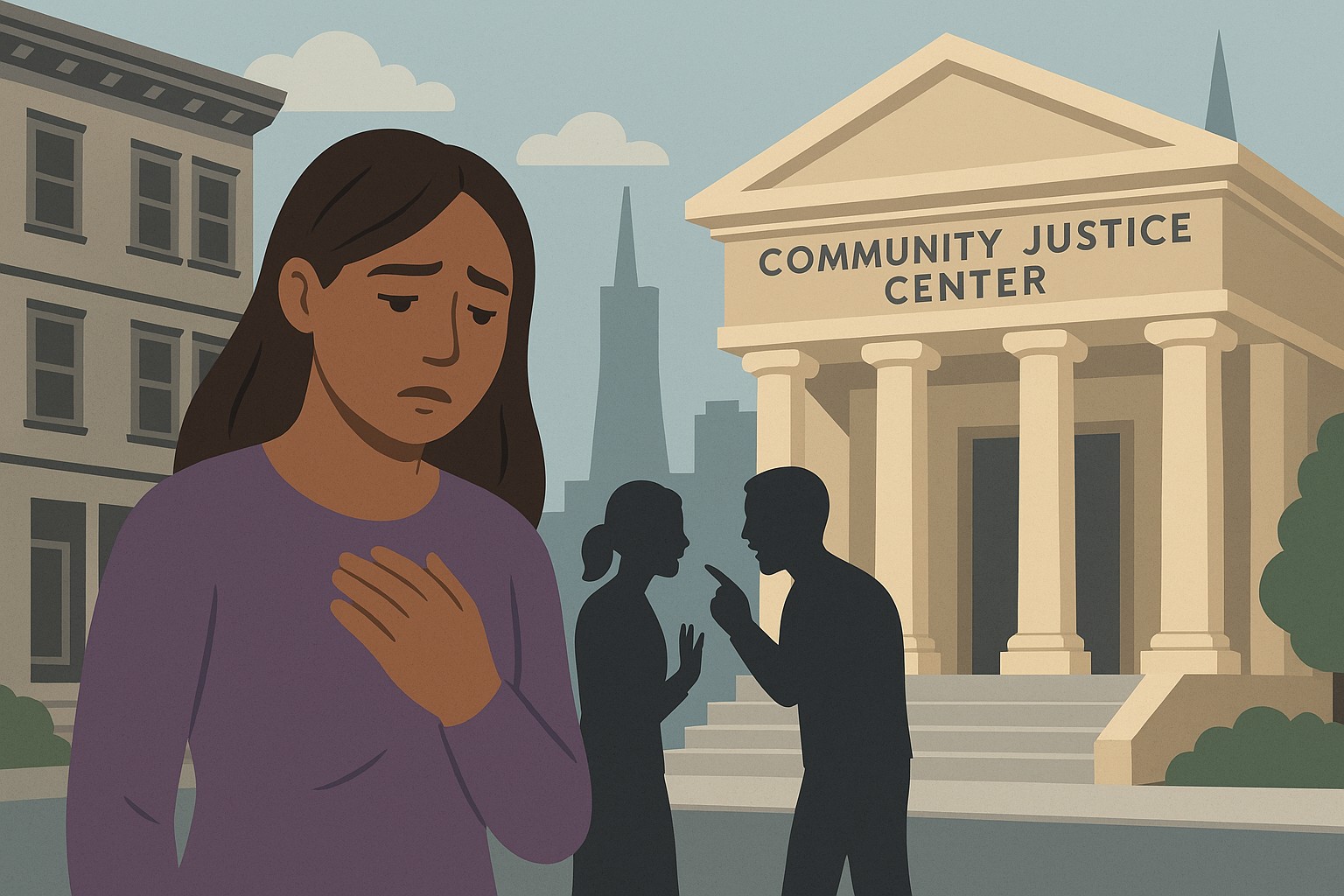Community Justice Center’s New DV Docket 2025: What San Francisco Survivors Need to Know Before Filing
The San Francisco Community Justice Center has launched a new, dedicated Domestic Violence (DV) Docket for 2025. This post explains what survivors need to know about this specialized court process before filing for a restraining order.

For domestic violence survivors in San Francisco, the legal journey to safety can be daunting. Navigating the court system often requires a specialized understanding of complex legal and emotional dynamics. Recognizing this need, the San Francisco Community Justice Center has launched a groundbreaking initiative in 2025: a new, dedicated Domestic Violence (DV) Docket. This specialized court calendar is designed to provide a more effective, compassionate, and streamlined process for survivors.
The New DV Docket Explained: A Specialized Approach to Justice ⚖️
A DV Docket is not just another court calendar. It is a dedicated court specifically for domestic violence cases. In San Francisco's new model, this means:
- Dedicated Judges: Cases on this docket are heard by judges with specialized training and a deep understanding of the unique dynamics of domestic violence, including coercive control and trauma-informed care.
- Integrated Services: The Community Justice Center model links the court to a network of social services, legal aid, and advocacy groups. This "one-stop-shop" approach ensures that survivors not only get a restraining order but also receive help with housing, counseling, and other critical needs.
- Consistent Decision-Making: With dedicated judges and a consistent process, survivors can expect more reliable and informed decisions, reducing the chance of their case being misunderstood.
The Core Benefits for San Francisco Survivors
This new docket is a game-changer for survivors in San Francisco. It provides a legal process that is designed to be more supportive and effective:
- Reduced Delays: By dedicating a specific calendar to these cases, the new DV Docket aims to reduce the long waits and scheduling conflicts that can delay a survivor's legal protection.
- Empathetic Handling: You can expect your case to be heard by a judge who understands the complexities of your situation, from the cycle of abuse to the challenges of gathering evidence.
- Holistic Support: The integrated services mean you are not just getting a legal order; you are being connected to a full support system that can help you rebuild your life.
What to Know Before You File
If you are a survivor in San Francisco, here are key steps to take before filing for a restraining order on the new DV Docket:
- Gather Your Evidence: Collect all relevant evidence, including photos, text messages, emails, and a detailed journal of incidents.
- Contact a Legal Aid Service: The San Francisco courts work closely with local legal aid organizations. These groups are already familiar with the new docket and can help you prepare your paperwork, understand the process, and provide a legal advocate to be by your side.
- Prepare Your Narrative: Be ready to provide a clear, factual account of the abuse, even if it is difficult. The new docket is designed to handle these cases with sensitivity.
This new DV Docket is a significant step forward for the city of San Francisco. It demonstrates a commitment to a legal system that is not only just but also compassionate, providing survivors with the tools they need to achieve safety and peace.
[object Object]
1. What is a "DV Docket"?
A DV Docket is a specialized court calendar dedicated exclusively to domestic violence cases. It ensures these cases are heard by judges with expertise in the specific dynamics of abuse.
2. How is this new process different from the old court system?
The new docket offers a more streamlined and specialized process. Instead of your case being heard by a rotating cast of general-assignment judges, it will be heard by a judge with a specific focus on domestic violence.
3. Will this new docket speed up my restraining order?
Yes. By dedicating a calendar to domestic violence cases, the new docket is designed to reduce delays and expedite the process, helping you get a Temporary Restraining Order (TRO) and a full hearing more quickly.
4. Do I need a lawyer to file on this new docket?
You are not required to have a lawyer, but it is highly recommended. Legal aid organizations in San Francisco can provide free legal assistance and help you navigate the specialized process.
5. What is the San Francisco Community Justice Center?
The Community Justice Center is a model that integrates the court system with social services. Its goal is to provide a holistic approach to justice, addressing not only legal issues but also the underlying needs of community members.
6. Where can I get help to file on this new docket?
You can get free help from local legal aid organizations and domestic violence support centers that are partnered with the San Francisco Community Justice Center. They can provide legal advice, help with paperwork, and offer emotional support.
